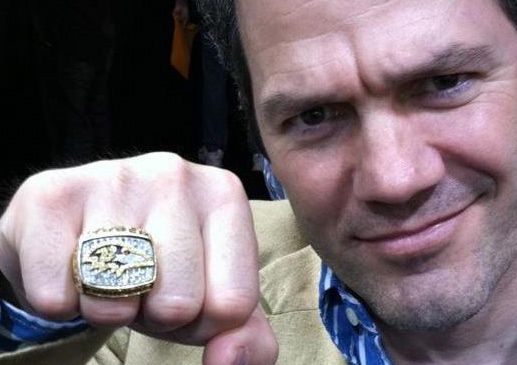|
| | |
Rick Weinberg
Special to ESPN.com
Scott Norwood was on the sidelines, practicing his kicks, thinking about his technique, visualizing a successful kick, doing all the things he normally does as he prepares to kick a field goal. His team, the Buffalo Bills, were moving downfield in the final minutes of Super Bowl XXV.There was 2:16 left in the game when the Bills got the ball back on their own 10, trailing the New York Giants 20-19 in a hard-fought Super Bowl classic.
Determined to keep the dynamic Bills' offense off the field as much as possible, the Giants' offense had controlled the ball for a staggering 40 minutes and 33 seconds, a Super Bowl record, with a dizzying 1-2 combination of Ottis Anderson rushes and Jeff Hostetler rollouts and passes.
But the Bills had the ball back with enough time to pull out a victory. Quarterback Jim Kelly began the final drive by running eight yards on first down. Two plays later, running back Thurman Thomas burst up the middle for 21 yards, getting the ball to midfield.
As Buffalo called its last time out at the Giants 46 with 48 seconds left, Norwood was booting ball after ball into a net on the sidelines, waiting for his moment. The weight of a franchise, the weight of an entire city, rests on his right foot. Thomas ran 11 yards to the Giants 29, and t hen Kelly stopped the clock with eight seconds left with an intentional incompletion, setting the stage.
THE MOMENT
January 27, 1991, Tampa, Florida. As Kelly runs off the field, he hands the reins to Norwood. The field goal he is about to attempt -- one that will win or lose this Super Bowl -- is from 47 yards out. He had not kicked a field goal longer than 48 yards all season.
He analyzes the length of the kick. All Norwood cares about is making sure he gets enough leg into the kick. At 47 yards out, he would later say, the percentages are against kickers. At 47 yards out, he would point out, the average success rate is under 50 percent. The odds are against him.
The spotlight is bright on this global stage: Will Norwood seize the moment, like Jim O'Brien did for the Colts in Super Bowl V, when he kicked the only other game-winning field goal, to this point, in Super Bowl history?
Norwood lines the kick up. Time freezes. Players on both sides of the field wait breathlessly for the moment to unfold. Some players kneel down on one knee and pray. Some hold hands. Some look away.
The ball is snapped. "I could not hear a sound," Norwood would say later. The crowd does not exist. The stadium, in Norwood's mind, is empty.
The ball floats slowly through the air. Norwood reviews the vital conditions in his head. "Make sure your timing is right," he thinks to himself. "Kick it high so it can't be blocked." He reminds himself to keep his head down, on top of the ball. Repetition. He's done it a million times. Just 1.3 seconds separates him from legend or failure, from choker to someone with ice in the veins.
The snap is caught by holder Frank Reich. He places the ball down on the grass. He turns the ball, ever so slightly. Norwood steps into the ball with his right foot and booms it toward the goal posts. He knows he kicked it well. He looks up, watching the flight of the ball. Every eye in the stadium watches the ball rise, tumble end over end, and then descend toward the goal posts. The players on the field turn and watch the ball.
Norwood bends his head, ever so slightly, and cringes. He feels he put too much on the kick, that he didn't get enough of his hips into it. Something feels wrong, he thinks to himself. As the ball inches closer to the goal posts Norwood's heart begins to sink. He prays for a little wind, something that would push the ball toward the middle of the uprights. He prays for the ball, at the very least, to hit the right upright and deflect back inside. He has an eerie, empty feeling in his stomach. "By that time," he would later tell the media, "I knew that the kick wasn't good."
As the ball sails inches to the right. Norwood drops his head to the ground. He wants to disappear. The biggest kick in the history of the NFL is no good. The Giants are Super Bowl champs.
"I wanted to hit the ball solid and I did," he would tell the media after the game. "I wanted to get the kick off fast and I wanted to get it high, so it wouldn't be blocked. And I did. I just didn't get my hips into it enough."
As Norwood stands in the Bills' locker room fielding questions, teammates, one after another, come by and touch his shoulder, or his back, illustrating their support and love. Linebacker Darryl Talley clutches Norwood's right hand and tells him, "I'm still with you."
Norwood talks about not having planted his foot properly. The ball started right but "it wasn't moving, it wasn't being drawn in," a disconsolate Norwood says.
There is not a sadder picture in sports than that of a player who had a chance to win a championship for his team and failed. Unable to manage a smile, Norwood tells the media, " I was very positive going into the kick, but that doesn't guarantee success. Unfortunately, I let a lot of people down."
| |
|
|
| | |
|
|

roud:









